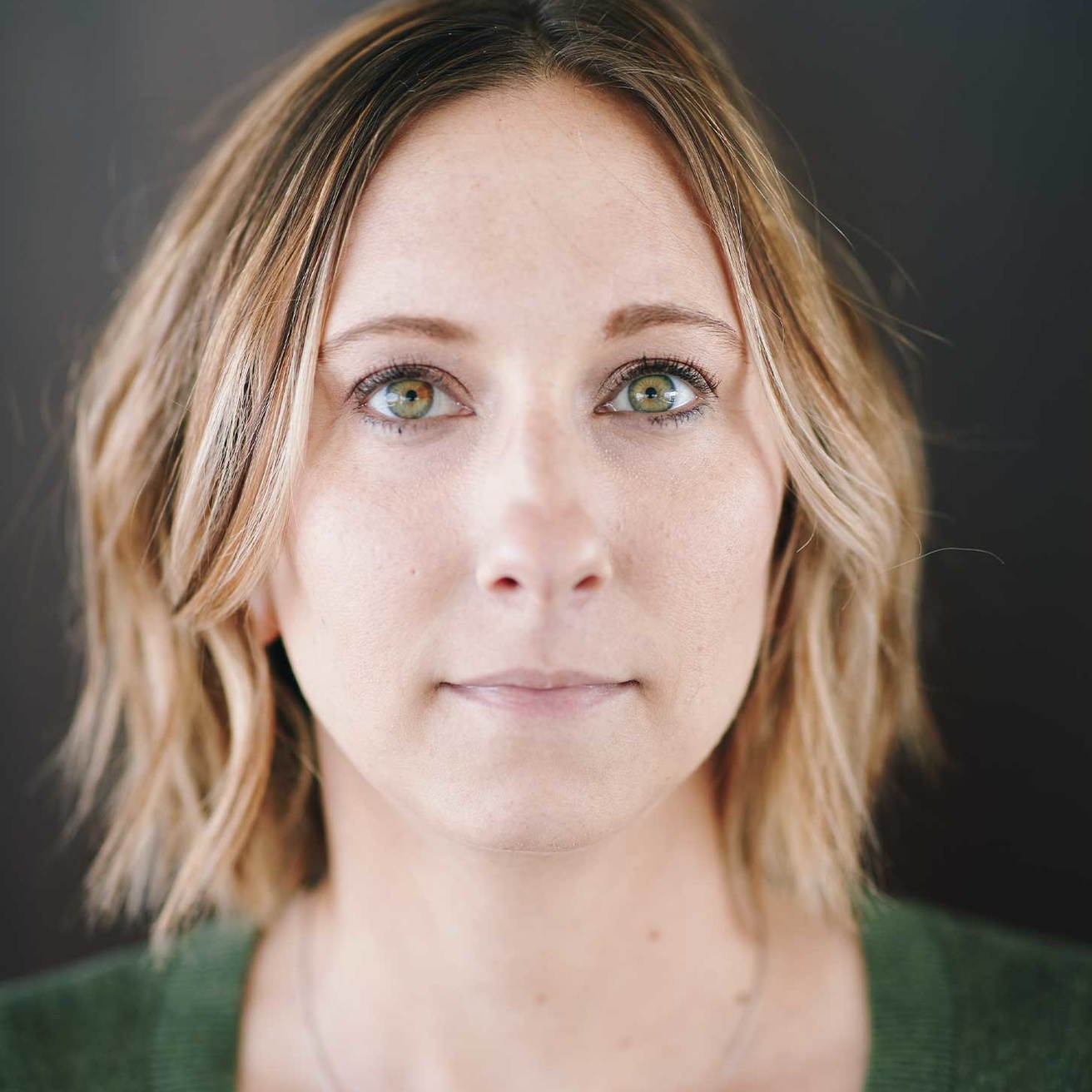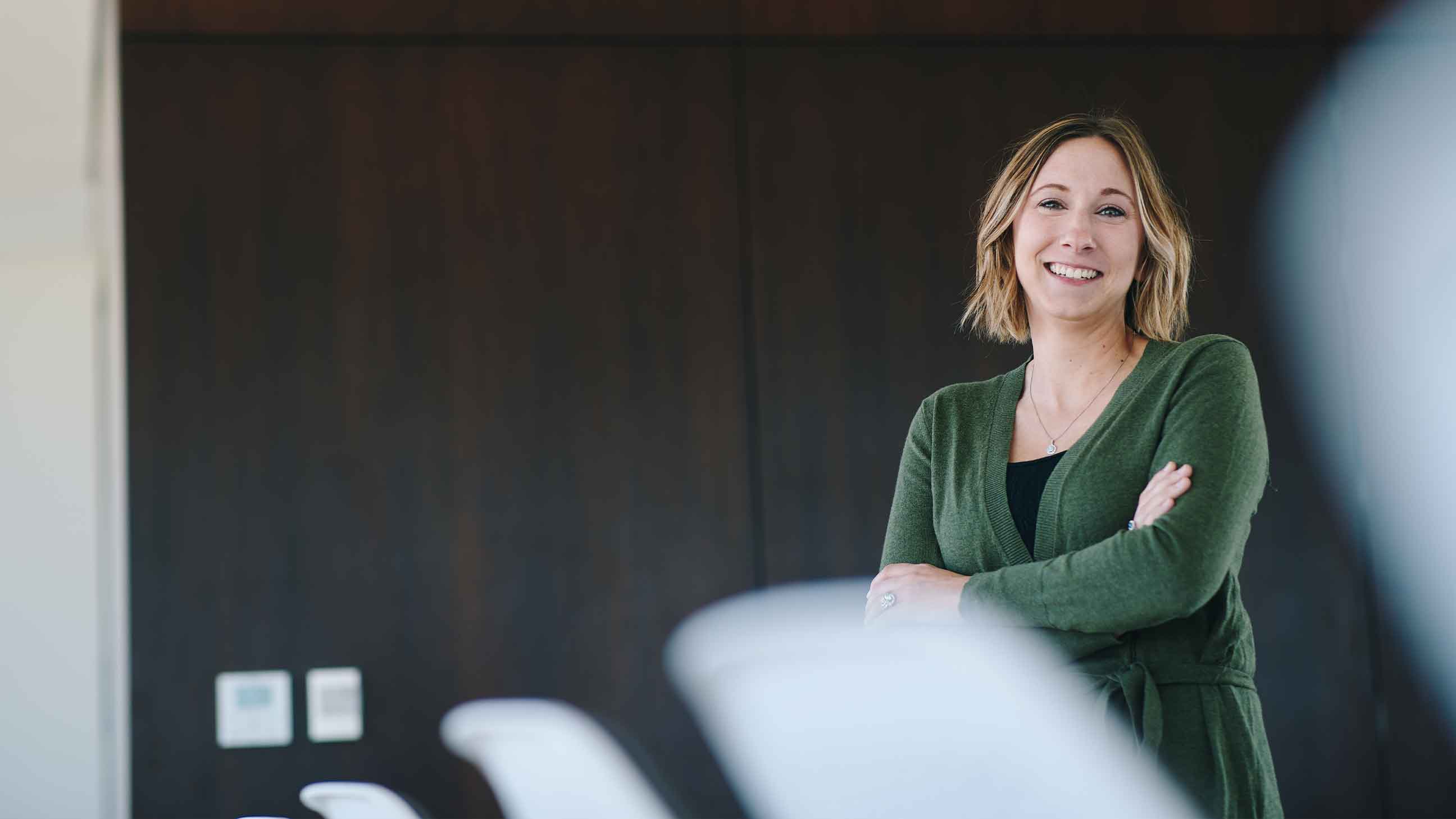
Determined to take the guesswork out of her company’s marketing, Nicole McCormick leveraged Iowa’s master’s in business analytics to generate data-driven results.
Pivot from marketer to manager
“I’m a crazy person—I just naturally add a million things to my plate,” says Nicole McCormick.
Crazy—or crazy smart?
She got started in business analytics by volunteering to add data analysis to her job as a marketing coordinator at an IT solutions provider. Then she realized there was more to data analysis than Excel—and there could be more to her career if she powered through Iowa’s part-time master’s in business analytics. It offered both a rigorous program and the flexibility to work full-time.
Now the manager of a five-person marketing ops team, Nicole’s on track for a director position. She’s gained the technical expertise to use sophisticated data tools to boost her company’s marketing results. More importantly, she’s gained the business know-how to speak confidently to both engineers and VPs—and the leadership skills to rise to the top.
Here are three things Nicole’s experiences taught her on the way to earning her degrees.
#1: There’s much more to business analytics than you can learn from Google—or do with Excel.
Nicole used to have a nagging feeling that her company’s marketing staff could get better results by paying more attention to the data collected from their website, emails, and other advertising efforts. “Back then, I didn’t know what analytics was, really. Once I even Googled ‘how do you use data’!” she said.
“It seemed very odd that we didn’t make information-based decisions when making marketing plans,” she continues. “We would say, ‘Oh, this is a great idea,’ but not ‘This webcast performed well on based on the number of attendees we attracted, we’ve met our end-goal ROI, let’s do the same kind of marketing again.’”
Nicole asked for, and won, her marketing VP’s blessing to make more use of company data. But she was still surprised when an analytics seminar gave her a glimpse of the world of tools beyond Excel. It showed there was still a lot to learn.
“Since I had never had any real training, I just kept thinking, isn’t there an easier way? Isn’t there a better way?” she said.
That better way turned out to be Iowa’s part-time master’s in business analytics.

“Joining the program seemed like a no-brainer. It would jump-start my immediate career and help make my long-term goals a reality.”
#2: Tech skills are key, but you’ve also got to talk the talk.
Nicole’s MSBA has introduced her to tools like R, SQL, and Tableau. She was wowed by her first brush with coding, whether to build out a database or do data visualization. But cracking these codes hasn’t just given her the skill to boost her marketing results. She now has the knowledge to communicate on the job with both engineers and VPs.
In fact, Nicole says, the biggest benefit of her analytics degree is being able to talk to engineers and tech types and say, “I get where you’re coming from. I know the tools you’re using and what your day-to-day work is like.”
At the same time, the communication skills she’s learned from her MSBA, MBA, and Leadership Certificate help her speak persuasively about what data can mean to the business and bring those insights to the table when talking to executives.
#3: The people you meet really are half the fun.
In her day job, Nicole works from home. In her MBA and MSBA program, she takes classes part-time. So even though she wasn’t a natural networker, she’s pushed herself to get involved—and she’s amazed at how much she loves it. As a volunteer on the Student Advisory Council for the part-time MBA, she especially likes serving on panels meant to calm the jitters of prospective master’s students.
“If you stay in your shell and don’t talk to your classmates, you’re missing out on a lot of camaraderie."
In both her MBA and MSBA programs, she’s built an informal network to take classes with and serve as study buddies. In part she likes having ready-made friends for team-based classes.
But she also likes to build solidarity with her female classmates.
“On the business analytics side, I purposely always take classes with three other women. There are far fewer women in the MSBA program. These women understand it’s a male-dominated world, and taking classes with them has made for such a solid support system.
“I’m not saying the men aren’t worth working with, too! But I want to be a strong woman in the industry, so it’s great to work with women who share that mindset.”